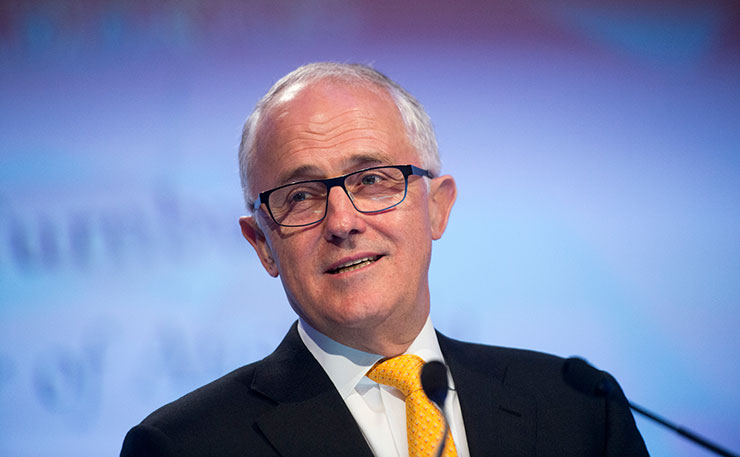The 2017 budget has bought Malcolm Turnbull some precious extra time, writes Ben Eltham.
The Monthly’s Sean Kelly, one of Australia’s most acute political observers, pointed out this week that “Australian politics right now does feel a little muted.”
The reason, he argued, was the 2017 budget. By pivoting to the centre and by putting forward actual policy, the government has managed to take some of the heat out of the political debate. That can only help a government that has struggled for clean air for most of its short life.
Most importantly, Kelly wrote, the political conversation is discussing policy. “There was a budget with actual proposals in it,” he argued.
They were of sufficient sense not to be laughed out of town, or met with unqualified horror; and centrist enough that Labor could not find grounds on which to disagree. As a result, the parliament is now occupied with a genuine contest on policy grounds.
We’ve reached an interesting moment in the political fortunes of the Turnbull government.
The reset button has been pressed – repeatedly and furiously, most recently with Scott Morrison’s May budget.
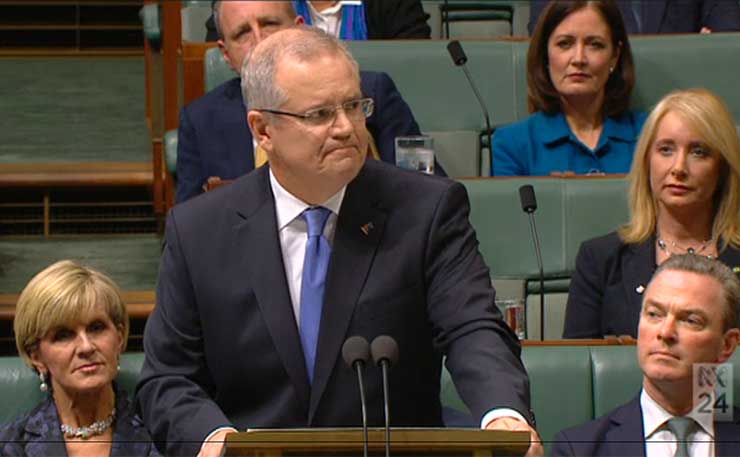
Damaged by internal division and drifting in the opinion polls, Turnbull and Morrison have pivoted towards the centre and genuinely shifted ground on several of the Coalition’s key policies.
As I argued at the time, the budget was politically clever. It addressed the obvious political problem that has confronted the Coalition for some time now: the desperate unpopularity of its 2014 austerity measures. The government sought to seize back the initiative from Labor by grabbing the political narrative in portfolios like health and education.
The truth is that Morrison’s second budget has discomforted Labour. There is a genuine debate going on within the parliamentary Labor Party – and perhaps even inside Bill Shorten’s team – about how to respond.
So far, we’ve seen only Anthony Albanese break ranks with his colleagues, and cautiously welcome some of the budget’s positions. Calling it an “overwhelming victory for the Australian Labor Party”, Albanese said in a speech that the Opposition should simply claim credit for the budget, and move on.
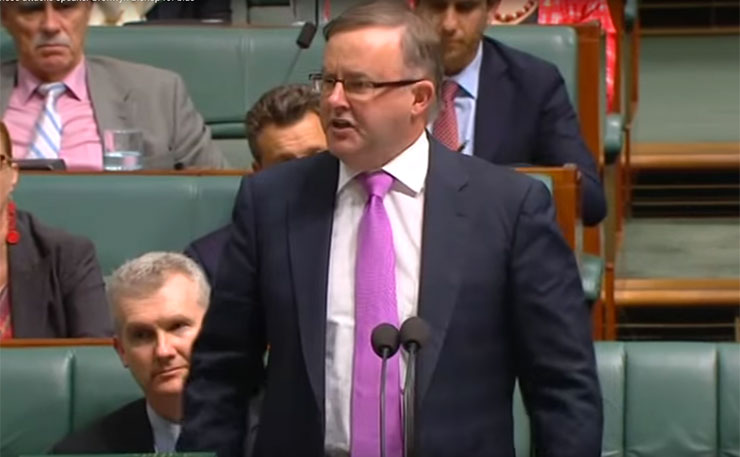
That’s not what the Labor Party has done, instead taking a more nuanced position, supporting some measures like the bank levy, while opposing others, like the government’s “Gonski 2.0” schools funding package.
But there is no doubt that by stealing some of Labor’s policies, the government has presented Shorten with a dilemma. How much of the 2017 budget should the opposition support? And how much should it oppose?
The horns of the dilemma are best illustrated by the shifting ground of the schools funding debate. By unveiling a policy that commits to needs-based schools funding, including $18 billion in a new funding envelope, the Coalition has challenged Labor to oppose a policy that, on the face of it, seems like a traditional Labor proposal.
Labor counters that Gonski 2.0 is far less than Labor’s promised funding. And that is correct: Labor’s schools funding policy is far more generous – $22 billion more generous, in fact.
But so what? The Coalition is offering more than zero. If the Coalition is offering to fund schools, shouldn’t Labor simply pass the measure, promise more, and work to win government to deliver the increase?
No, argues Labor’s Tanya Plibersek. Plibersek believes there are genuine problems with the model that the Coalition is putting forward.
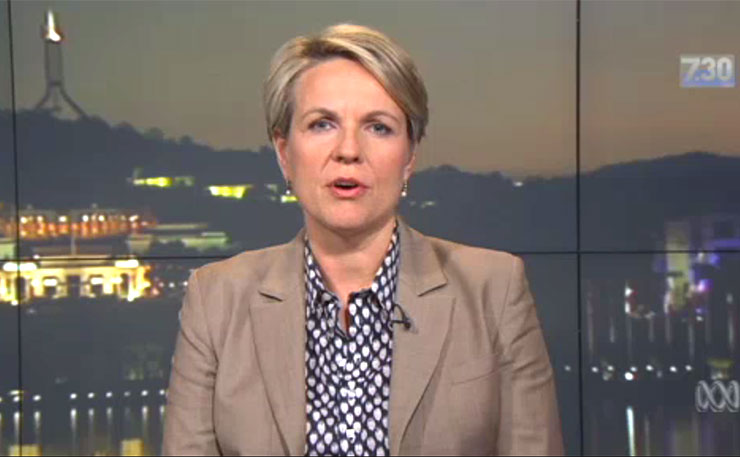
“It appears from the information the Government have released so far they will actually lower the Schooling Resource Standard and nevertheless, most Government schools will still not meet that lower Schooling Resource Standard within 10 years,” Plibersek told the ABC’s Fran Kelly this week.
This is true, but not the whole truth. In nominal terms, the government’s proposal will increase the Schooling Resource Standard as a share of funding. Funding will increase, but in much smaller increments. Again, it’s more than zero, but much less than Labor’s original funding envelope.
Plibersek also points out that the states and territories may well not agree with the government’s proposal. This is true too. In fact, given the Northern Territory is likely to lose money, and many of the deals Julia Gillard struck with the states were extremely generous, this is almost certain. But it’s also a problem the government would always have faced, whatever the funding model.
Another intriguing inflexion point is equity. Given the information we have to hand, Gonski 2.0 is mildly progressive. The Coalition’s proposal includes a rather modest level of redistribution that would take some money off some schools and systems, in return for a modest increase in funding to needier schools.
So, will Labor back that? Or will it bow to pressure from the Catholic education systems – many of which themselves have needy schools – and oppose the reductions to certain sectors of the Australia’s secondary education system?
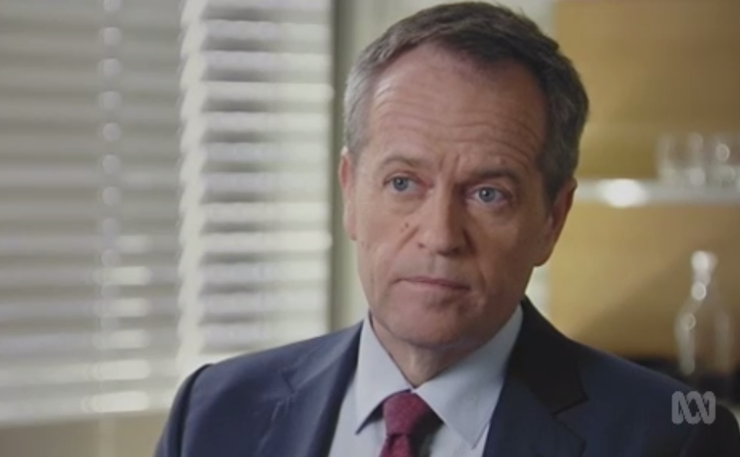
At this stage, Labor remains opposed to the policy, in part because it does take money away from the Catholic systems, and from the Northern Territory and Tasmania. Labor argues that the new system will itself be inequitable.
But so was the system that Labor bequeathed. All sorts of inequities were baked in by Labor during the tortuous 2013 negotiations around the schools funding package. Perhaps the simplest and most unfair was the original stipulation on Gonski’s first review, that no school receive less funding. This locked in unwarranted largesse to elite non-government schools.
Schools policy is always treacherous terrain. The Greens are also struggling to come to grips with the Coalition’s maneuver, reserving their decision on Gonski 2.0 until after a Senate Inquiry on the matter.
In the meantime, the government has gained a little bit of precious clean air. “We will continue to go on and govern in a way that’s good for Australians,” Josh Frydenberg told Sky News on Monday, enjoying the opportunity to spruik his government’s sudden stability. “The feedback from constituents and colleagues has been very positive.”
Perhaps the feedback has been positive in Frydenberg’s constituency in Melbourne’s leafy eastern suburbs, but whether the rest of the country agrees remains to be seen. It’s still too early to tell whether the reset has worked. The recent round of opinion polls have seen no movement, leaving the government trailing Labor 47-53. On the other hand, things haven’t got worse.
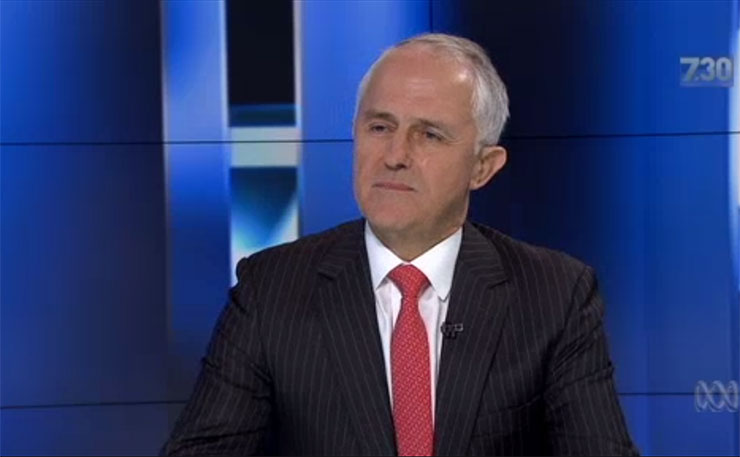
For that reason alone, the second half of May has been one of Turnbull’s best periods since the beginning of his prime ministership. The failure of the budget to crash and explode means that Turnbull will be given some more time. Coalition disunity has for a time at least been tamped down.
But the real test will come later in the year, as the government attempts to slowly claw its way back to parity.
If you cast your mind back to 2015, Tony Abbott tried to press the reset button too. After the disaster of the 2014 budget and the string of self-inflicted wounds that followed it, the plan for 2015 was to get on with the business of running the country and hope that a run of quiet months would eventually allow public sentiment to recover. “Good government starts today,” Abbott earnestly declared in a media conference. Unfortunately for Abbott, it didn’t.
Labor has a simple option if its opposition to specific policies like the schools package starts to cost it. As Anthony Albanese pointed out, the ALP can always cut a deal, claim credit, and renew hostilities. Given the many looming problems of Australian public policy, the Opposition has plenty of ammunition.
Don’t get too excited about the Coalition’s clever new wedge. As nimble as Turnbull’s centre pivot looks now, it may all come to nothing in the long run.
If Turnbull can’t claw his way towards political parity by the summer, the sharks will begin to circle again.
Donate To New Matilda
New Matilda is a small, independent media outlet. We survive through reader contributions, and never losing a lawsuit. If you got something from this article, giving something back helps us to continue speaking truth to power. Every little bit counts.

